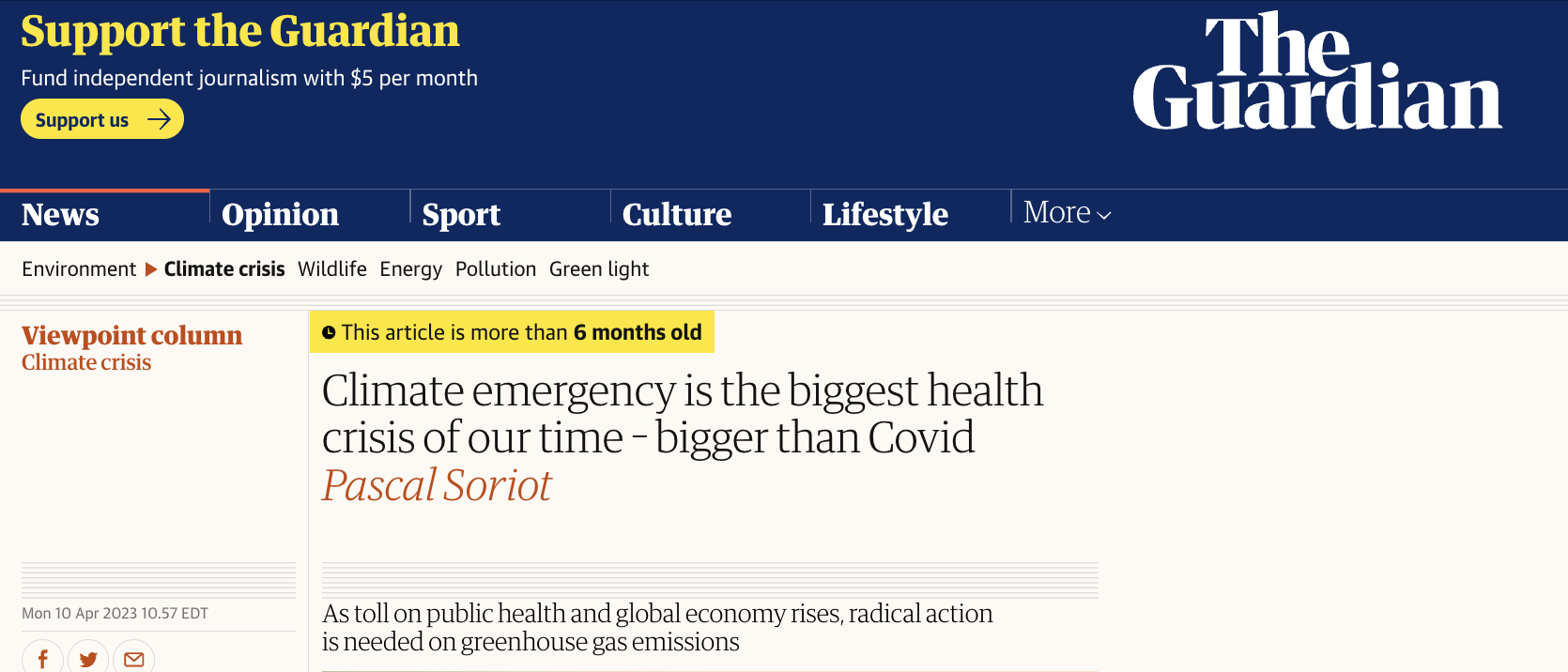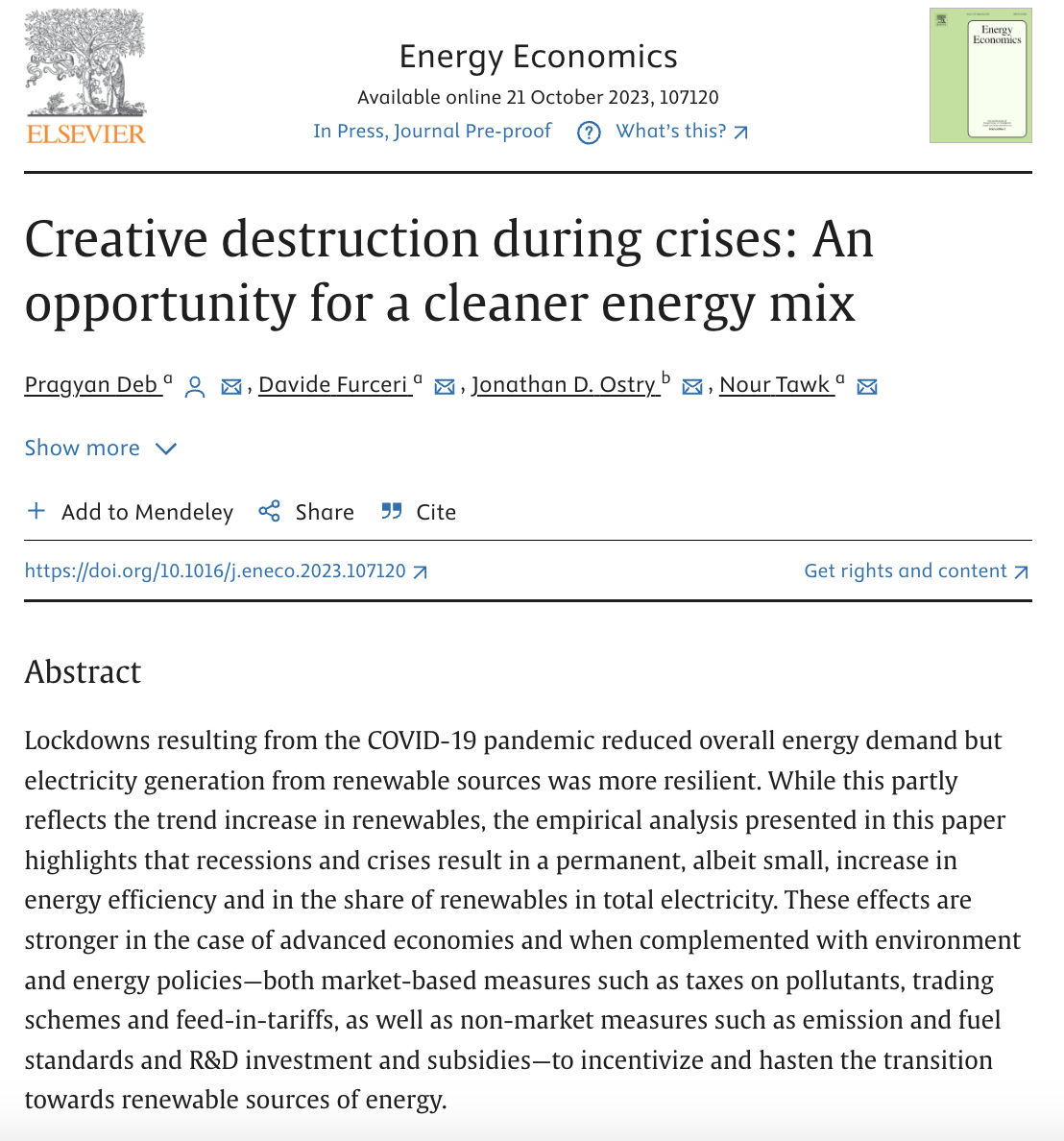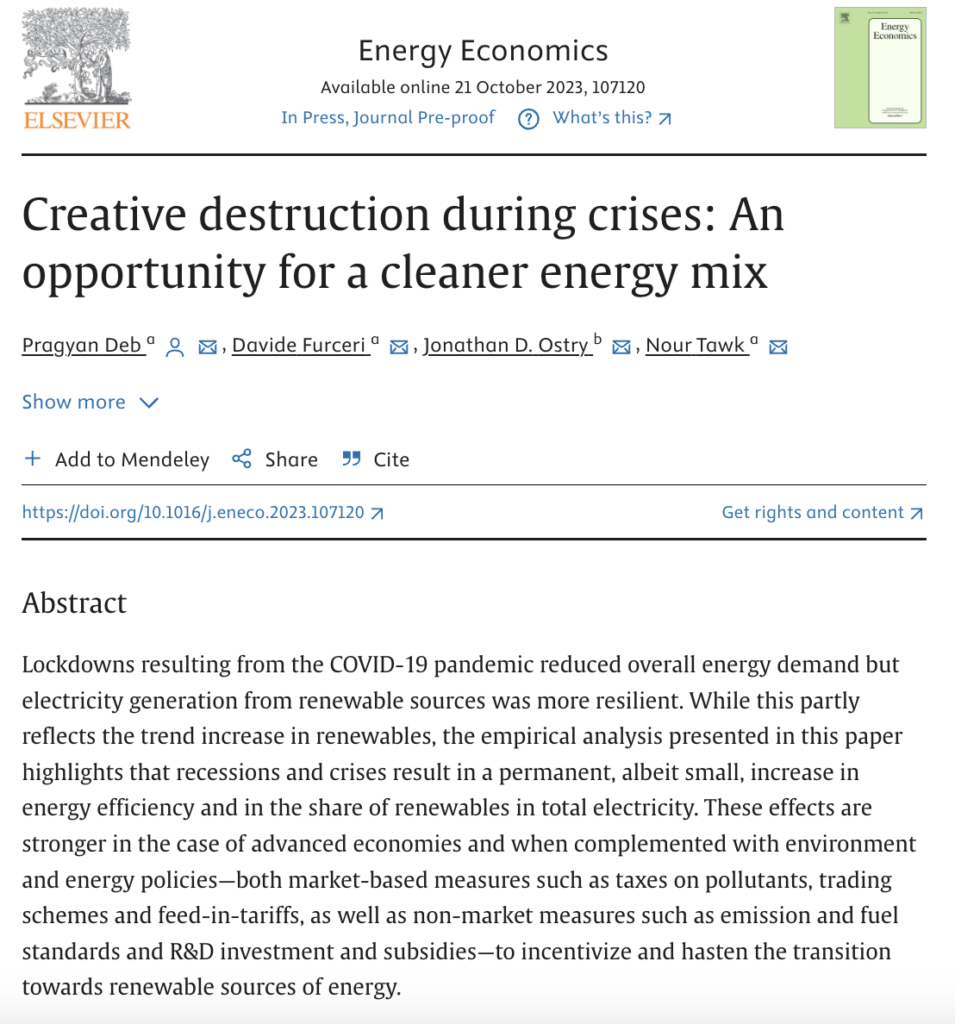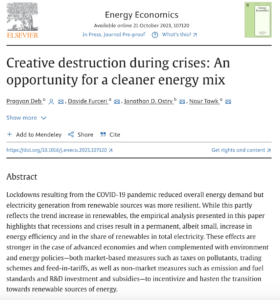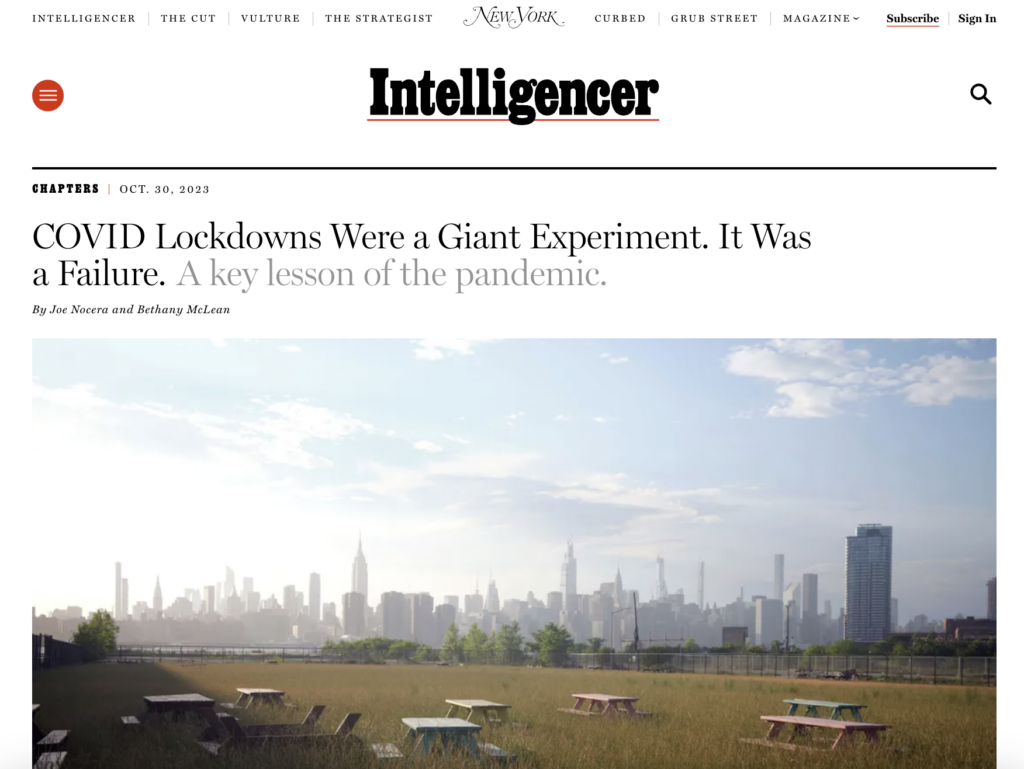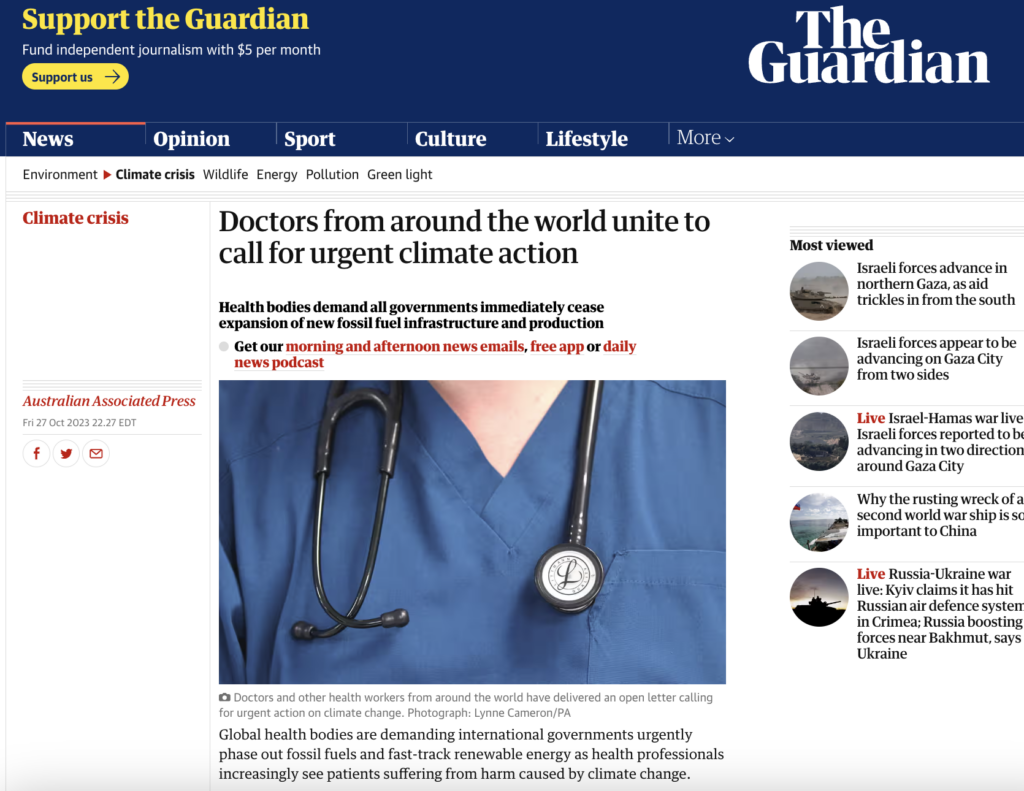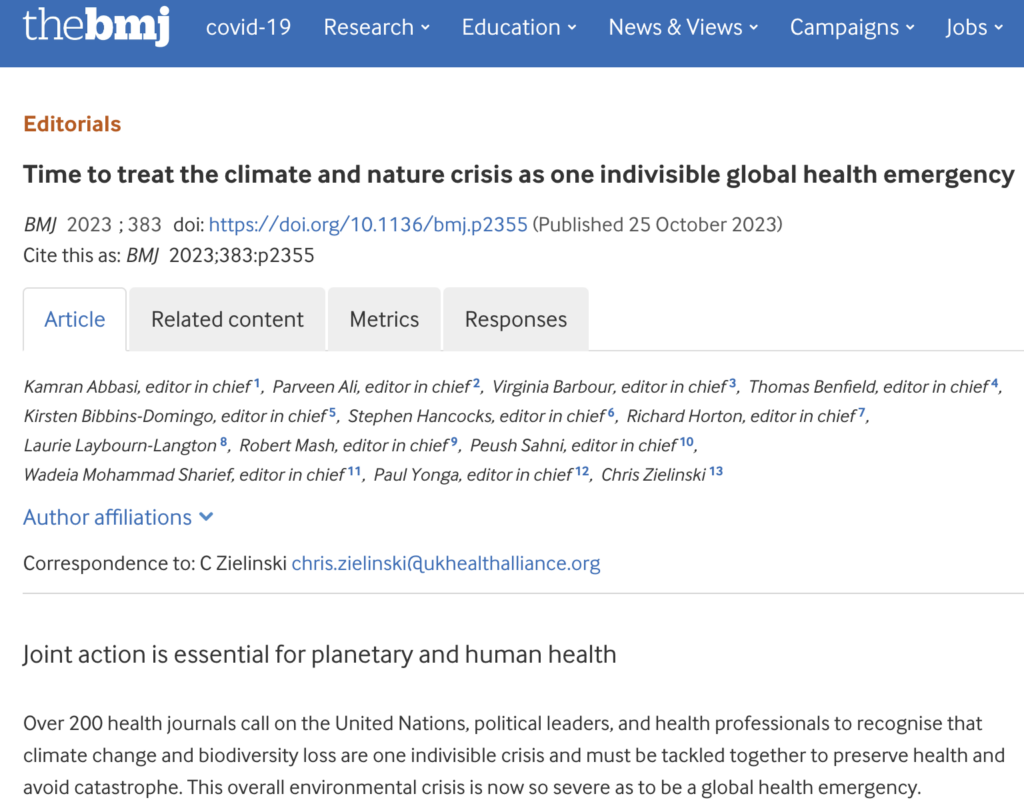https://www.sciencedirect.com/science/article/abs/pii/S0140988323006187
Energy Economics – Available online 21 October 2023, 107120
Creative destruction during crises: An opportunity for a cleaner energy mix
Abstract: Lockdowns resulting from the COVID-19 pandemic drastically altered energy consumption patterns. Lockdowns implemented within a few months of the pandemic meant that global energy demand, especially for coal, oil, and gas, declined steeply (McGrath, 2020). According to the International Energy Agency (IEA, 2020a), energy demand dropped by 25% on average per week in nations with a full lockdown, and 18% in those in partial lockdown. This decline was mostly driven by the reduced demand for electricity in the commercial and industrial sectors, while household energy demand rose by 40%, as millions of citizens were confined to their residences (Broom, 2020).
In contrast to the pattern for overall energy demand, generation from renewable sources was resilient to the COVID-19 crisis. Global use of renewable energy in all sectors increased by 1.5% and, as a result, the share of renewables in electricity demand increased in many regions (International Energy Agency, 2020b), including parts of Europe and the United States (Fig. 1). While this reflects, in part, the trend increase in renewables (Fig. 2), with new wind and solar projects already in the pipeline coming online in 2020, it may also reflect the “creative disruption” associated with the crisis—that is, the opportunity from the crisis to abandon inefficient non-renewable sources of energy production and switch to renewable sources.
The aim of this paper is to explore the possibility that crises provide a window of opportunity for greener energy and increase the share of renewable energy.
Conclusion: Excerpt: The empirical analysis confirms that growth slowdowns, including those engendered by pandemics and financial crises, result in a permanent increase in energy efficiency and a corresponding decline in the energy intensity of output, with a disproportionate impact on dirty energy.
#
Related:
https://nymag.com/intelligencer/article/covid-lockdowns-big-fail-joe-nocera-bethany-mclean-book-excerpt.html
By Joe Nocera and Bethany McLean Until the Chinese government deployed this tactic, a strict batten-down-the-hatches approach had never been used before to combat a pandemic. Yes, for centuries infected people had been quarantined in their homes, where they would either recover or die. But that was very different from locking down an entire city; the World […]
https://www.theguardian.com/environment/2023/oct/28/doctors-from-around-the-world-unite-to-call-for-urgent-climate-action Australian Associated Press Global health bodies are demanding international governments urgently phase out fossil fuels and fast-track renewable energy as health professionals increasingly see patients suffering from harm caused by climate change. The world’s leading GP and health bodies, representing more than three million health professionals worldwide, will deliver an open letter on Saturday […]
British Medical Journal: Published 25 October 2023: Over 200 health journals call on the United Nations, political leaders, and health professionals to recognize that climate change and biodiversity loss are one indivisible crisis and must be tackled together to preserve health and avoid catastrophe. This overall environmental crisis is now so severe as to be a global health emergency…
Human health is damaged directly by both the climate crisis, as the journals have described in previous editorials, and the nature crisis. …
The World Health Organization should declare the indivisible climate and nature crisis as a global health emergency. The three preconditions for WHO to declare a situation to be a public health emergency of international concern are that it is serious, sudden, unusual, or unexpected; carries implications for public health beyond the affected state’s national border; and may require immediate international action. Climate change seems to fulfil all those conditions. …
We must recognise this crisis for what it is: a global health emergency.”
#
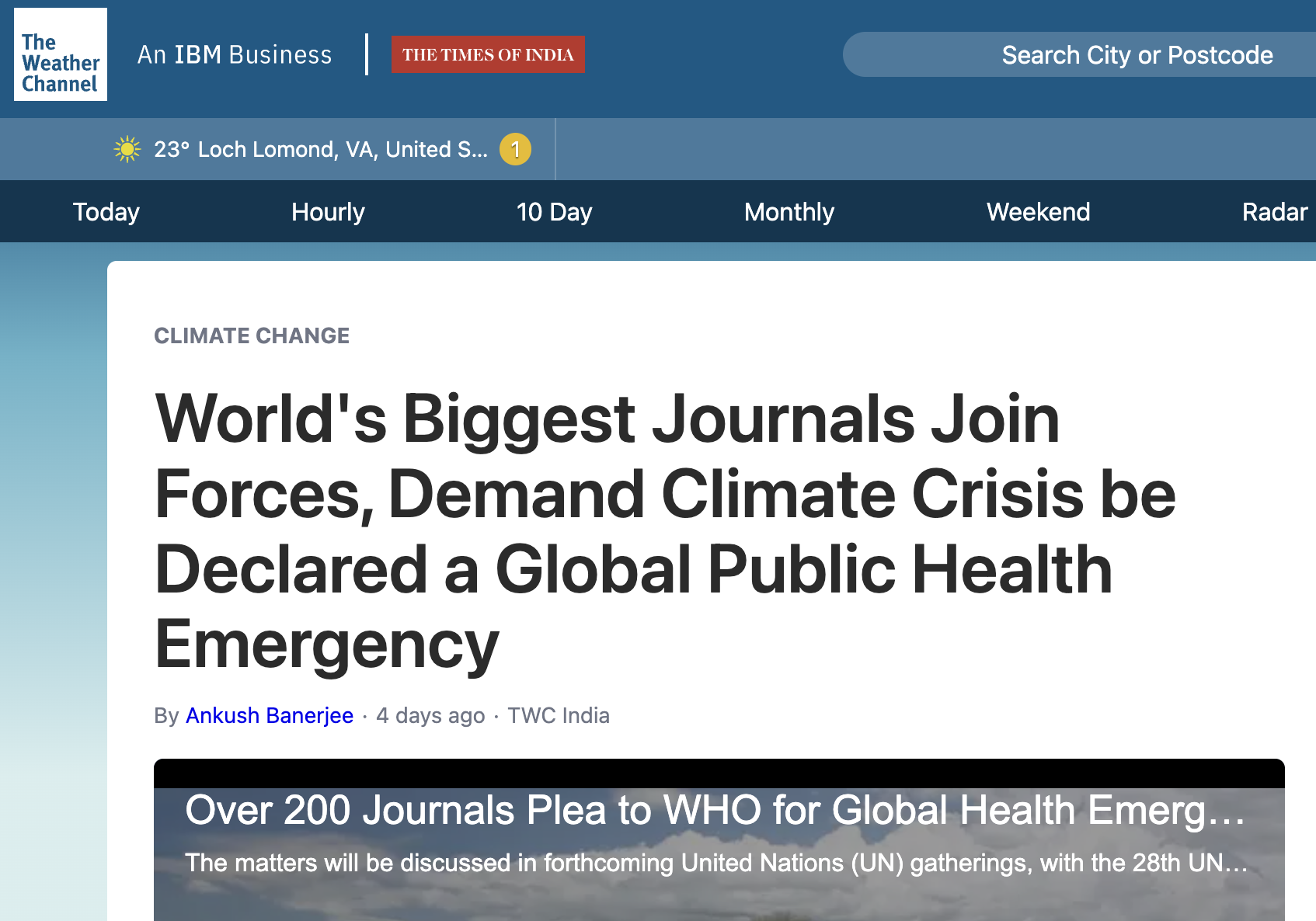
https://www.sciencedirect.com/science/article/abs/pii/S0140988323006187
Energy Economics – Available online 21 October 2023, 107120
Excerpt: “The aim of this paper is to explore the possibility that crises provide a window of opportunity for greener energy and increase the share of renewable energy.” …
“The empirical analysis confirms that growth slowdowns, including those engendered by pandemics and financial crises, result in a permanent increase in energy efficiency and a corresponding decline in the energy intensity of output, with a disproportionate impact on dirty energy.”
#
